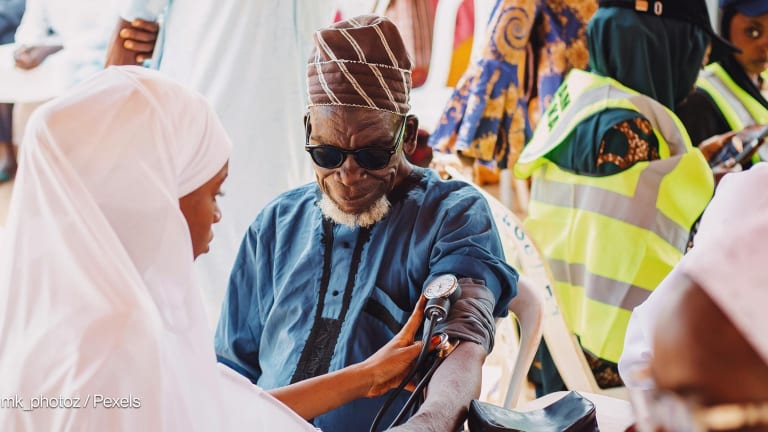
BERLIN — Researchers and development experts have a lot to learn from each other, but how public and private funders might bring them together was the subject of some debate during the second day of the World Health Summit.
“Agents of development policy and health care often feel their suspicion confirmed that academia is something like an ivory tower without any familiarity with requirements of the practice,” said Walter Bruchhausen, a professor of global health at University Hospital Bonn. Meanwhile, “proposals and innovations are not taken up in development projects and practice.”
Representatives from public and private funders, who spoke during a Monday WHS workshop, said they are working to bridge that divide. They described initiatives to put money into researcher training and to help link academics to development-oriented organizations, while also supporting local institutions to develop the capacity to both set and execute agendas driven by national needs.
“At which points are funders willing to give up some control and priority setting?”
—
Caroline Schmutte, German office lead, WellcomeTo bridge the gap, the best investment might not be in academic institutions, at all. Instead, Francis Omaswa, executive director of the African Center for Global Health and Social Transformation, argued funders should be supporting national research institutions, like the Uganda National Health Research Organisation in his home country, which set their agendas based on government priorities.
World Health Summit kicks off amid pandemic
As one of the first major health conferences to be held since the start of the pandemic, WHS aims to focus attention on the longer-term need for effective, universal health systems.
“Then the funding would be directed to more strategic areas than happens now,” he said, urging governments “to find a way of partnering with national research bodies that work with civil society organizations to make sure any research is responding to the needs of the people. Academia is too much preoccupied with itself and not serving the needs of the people.”
Caroline Schmutte, the German office lead for the U.K.-based donor Wellcome, acknowledged that there is a clear need to localize funding decisions — to national research bodies or elsewhere — and to offer transparency about the goals motivating each partnership, whether creating capacity, fostering local ownership or promoting scientific excellence.
That will bring some uncomfortable discussions, she acknowledged, both about who to fund and also how much control over funding decisions donors are willing to cede.
“At which points are funders willing to give up some control and priority setting?” she asked. “As a private funder that’s easier said than as a public funder. It’s harder to give up control over German taxpayer funding. At the same time, local ownership means less control on the donor side.”
Bridging the gap between development and research might also bring additional financial demands on funders, as the emphasis shifts to the expensive task of actually translating that research into something concrete, whether it is a new programmatic approach or an actual therapy or vaccine.
That’s why Wellcome and others are looking for additional commitments from the countries, themselves, including a willingness to put some of their own resources into supporting research.
Ministries, but also international agencies, might also leverage their purchasing and distribution capacity to boost research efforts, including in low- and middle-income countries. An early commitment to providing a market for successful innovations might transform research agendas.
The German Ministry of Economic Cooperation and Development, or BMZ, is currently waiting for parliamentary approval to form a partnership with the nonprofit diagnostics innovation foundation, FIND, to get its products into the field. Though FIND is not a global south researcher, the partnership might offer a model for working with research groups anywhere in the world.
“That would be our part as BMZ,” said Birgit Pickel, director of global health at BMZ. “It’s a good example of bringing together research, applied research, and actual implementation on the ground so that diagnostics will be made available.”
Ultimately, Omaswa said, what is most important is that “knowledge generation should be responding to the needs of the people.”








